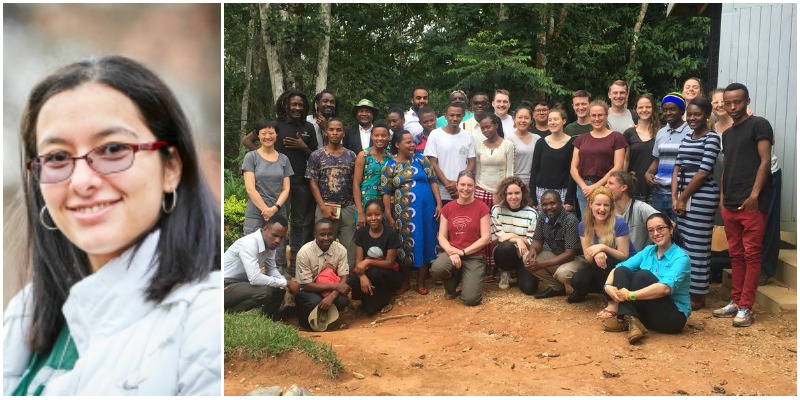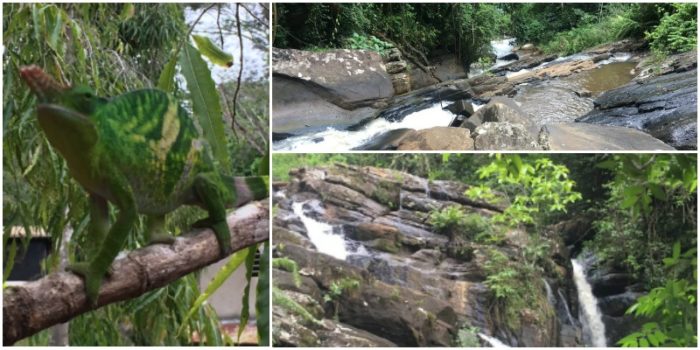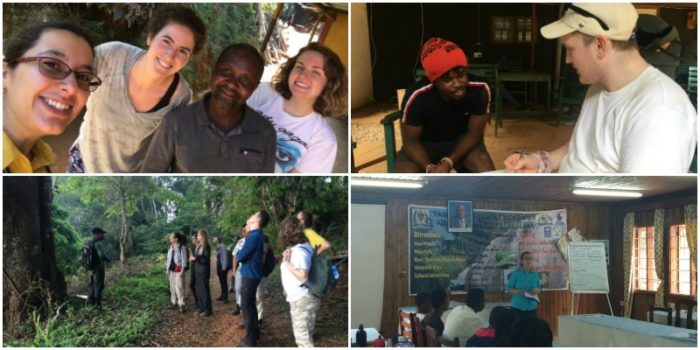A dream that came true: my fieldwork experience in Tanzania

When I was thinking of coming to study in the UK, I was looking for a programme that would provide me with the opportunity of applying course work in a practical way. I found all that I was looking for at the University of Leeds, which has so many programmes that include practical and theoretical learning. The programme I study is Environment and Development with Integrated International Fieldwork. My motivation to pursue this MSc. was to learn how to integrate social development and environmental conservation in the context of a developing country, in order to apply this knowledge back in my home country, Guatemala.

On this programme we learn about the economic, environmental and social challenges for achieving sustainable development. The fieldwork is the opportunity to gain direct experience of doing development research in a rural context and learning about the challenges that people in those areas face for maintaining their livelihoods and at the same time, conserve natural resources. We conducted our fieldwork in Amani Nature Reserve (ANR) in Tanzania. This place is recognized for its high biodiversity value: it is home to at least sixty-four endemic flora species, including trees, shrubs and herbs, and about seventy-four endemic fauna species including birds, butterflies, amphibians, reptiles and non-marine molluscs, amongst others. Visiting this place allowed us to enjoy the wildlife. For example, many days we saw some monkeys eating jackfruit or jumping from one tree to another and we went on night walks through the forest, where we saw many animals with night-habits and we visited some amazing waterfalls. It was a nice way to connect with nature and directly learn about its processes.

Also, during our fieldwork, we visited different farms and development projects in villages surrounding ANR. We discovered the day-to-day realities of local farmers and the challenges for sustainable development in a rural context. Each student is working on an individual project, so during our time there, we collected data interviewing people and conducting observations. This is a good opportunity for conducting your own research and gaining first-hand field experience and learning how to undertake fieldwork in future opportunities. One of the main challenges for conducting our research projects was the language since locals speak mainly Swahili. For this reason, we had the support of translators that have the experience of working with researchers and students from previous years. This is a good way to develop other skills and face real challenges that we may face in the future when working in an international environment and visiting different countries where we might not understand the official language. At the same time, this fieldwork allowed me to recognize that despite our cultural differences, we all are very similar and aim for similar things: good for our families and our communities. I will always remember with a big smile and positive feelings, the places we visited, the wonderful Tanzanian people, and the great moments shared with my course-mates. I would love to go back someday in the future. I feel very grateful for this experience perfectly organised and full of positive things, thanks to the University of Leeds that does its best to give us the best student experience.
Come to the University of Leeds and live unique experiences!
For more information visit:
https://courses.leeds.ac.uk/i165/environment-and-development-with-integrated-international-fieldwork-msc
